“讓學習在雅思口語課堂上發(fā)生”——初中高端英語項目外籍教師進行公開課展示
發(fā)布日期:2019-11-21 信息來源:
11月20日,,初三年級英語外教Miss. Emily進行了初三高端英語項目雅思口語公開課展示,,她帶來了一堂生動活潑,非常具有示范性的雅思口語教學,。初中高端英語項目負責人張麗君主任以及其他組內(nèi)中外教共同觀摩聽課。

首先,,Miss Emily用學生們非常熟悉的attendance questions開始和學生們進行互動,。這堂課的主要教學目標是讓學生們了解如何講一個小故事,即對突發(fā)狀況的場景描寫,,教師提問“In emergencies, do you freak out or are you as cool as a cucumber? 在遇到緊急情況時,,你會驚慌失措還是鎮(zhèn)定自若?”通過這個環(huán)節(jié),,不僅能便于老師了解學生的出勤情況,,還能讓每個學生表達對問題的觀點。接著,,教師讓學生完成課本上的連線題,,將一些線索、細節(jié)與故事主干連線,,讓學生對如何講故事有一個初步印象,。隨后,播放關(guān)于主人公Abi如何應(yīng)對突發(fā)事件的聽力,,讓學生回答四個有關(guān)故事主干的問題,,即“Where was Abi? What happened? How well did he communicate? Why does he remember the situation?”了解故事脈絡(luò)之后,外教帶領(lǐng)學生一起提煉并總結(jié)聽力內(nèi)容中描述故事階段的時間連接詞以及如何表達原因的句式,,為之后的口語表達做鋪墊,。
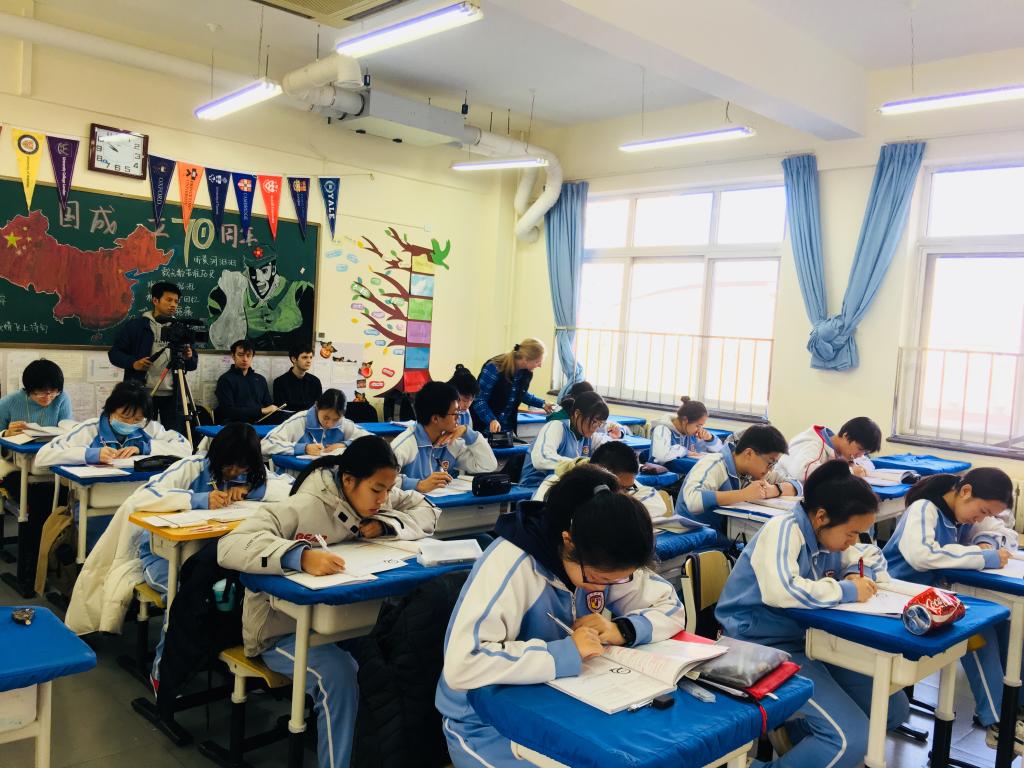

為了讓學生更加清晰如何講述故事,外教再次引導學生總結(jié)講述故事的要點,,比如“我”當時正在做什么,、突然發(fā)生了什么事情、“我”是如何解決的,、為什么這件事情是令“我”印象深刻,。隨后,外教以自己的親身經(jīng)歷為例,,給學生示范并引導學生如何一步步講述故事的經(jīng)過,。此外,外教還強調(diào)了在敘述整個故事的時候可能用得到的時態(tài),,對應(yīng)的時間詞和連接詞等細節(jié),。 最后,學生進行pair work,,分別轉(zhuǎn)述教師的經(jīng)歷,,進一步內(nèi)化本節(jié)課的重點內(nèi)容,最后,,引導學生分享自己的一段經(jīng)歷,。整堂課任務(wù)有層級,,一環(huán)扣一環(huán),既調(diào)動了學生的學習興趣也培養(yǎng)了學生的邏輯思維能力,。
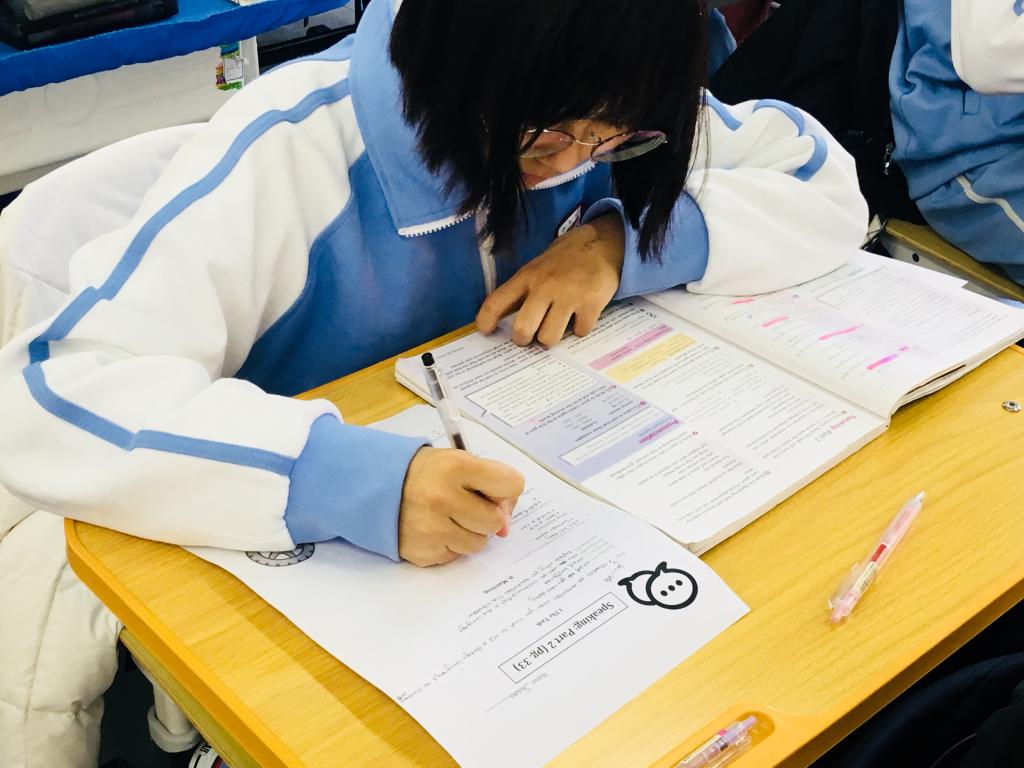
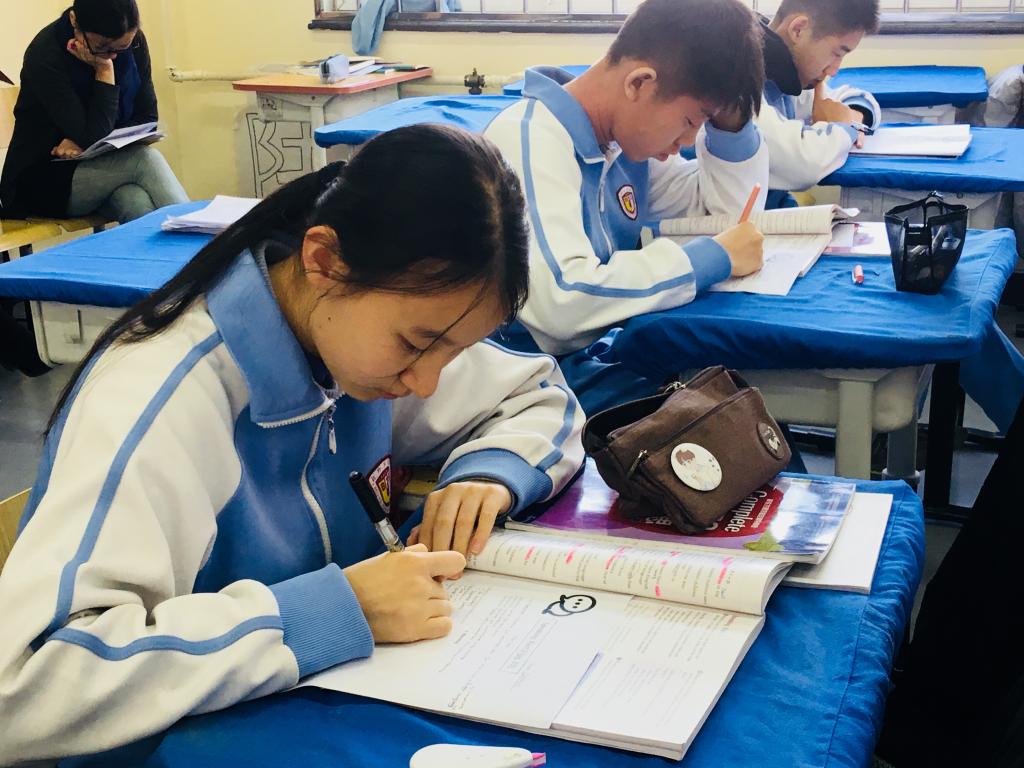
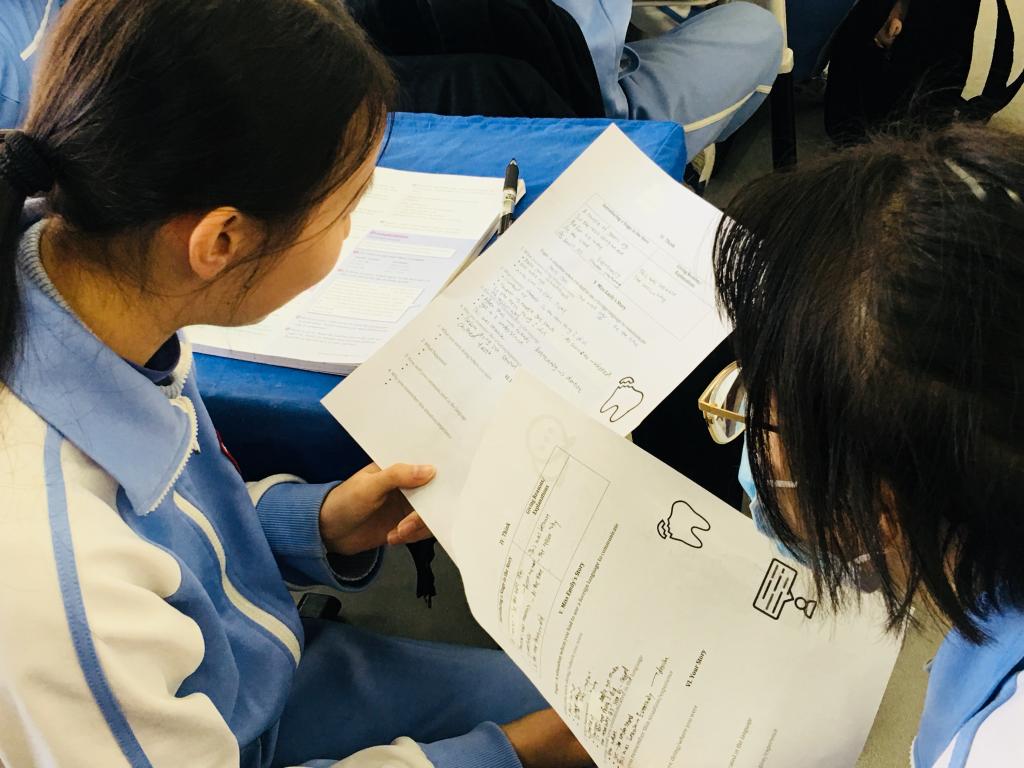
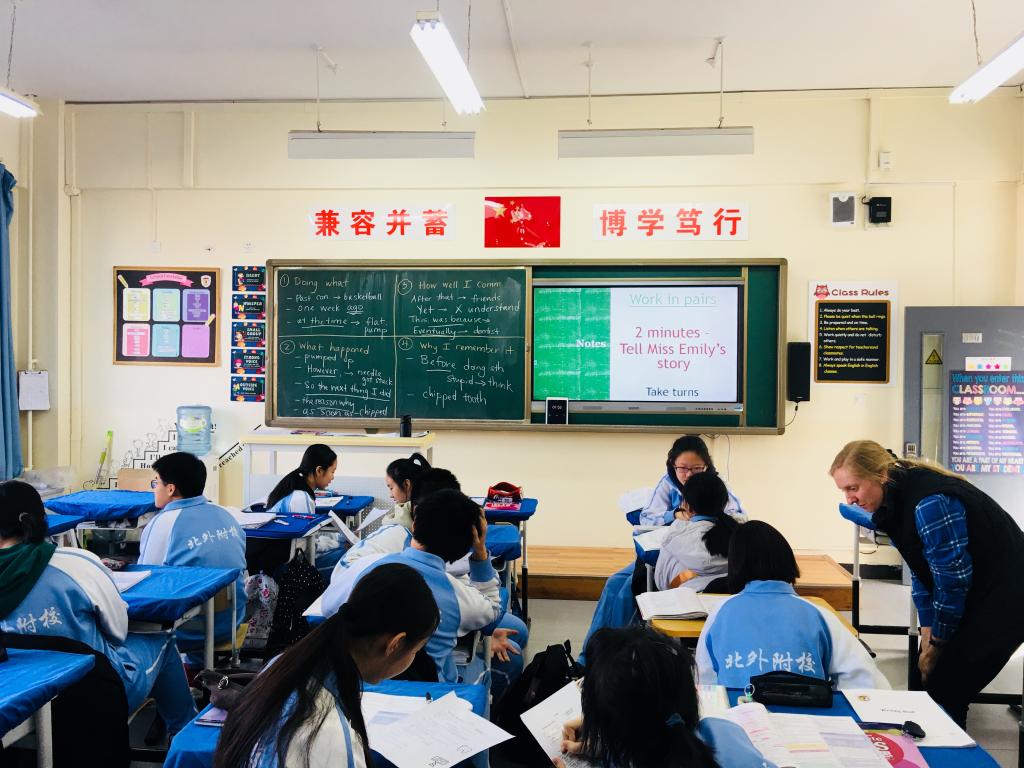
在這堂課中,,教師通過啟發(fā)、例舉,、提問或反問等引導并激發(fā)學生思維,,自然互動,有效促進了學生積極參與課堂,。學生們用英語講故事,,自信地表達,增強了英語學習的自信心,,提升了英語學習的內(nèi)驅(qū)力,。
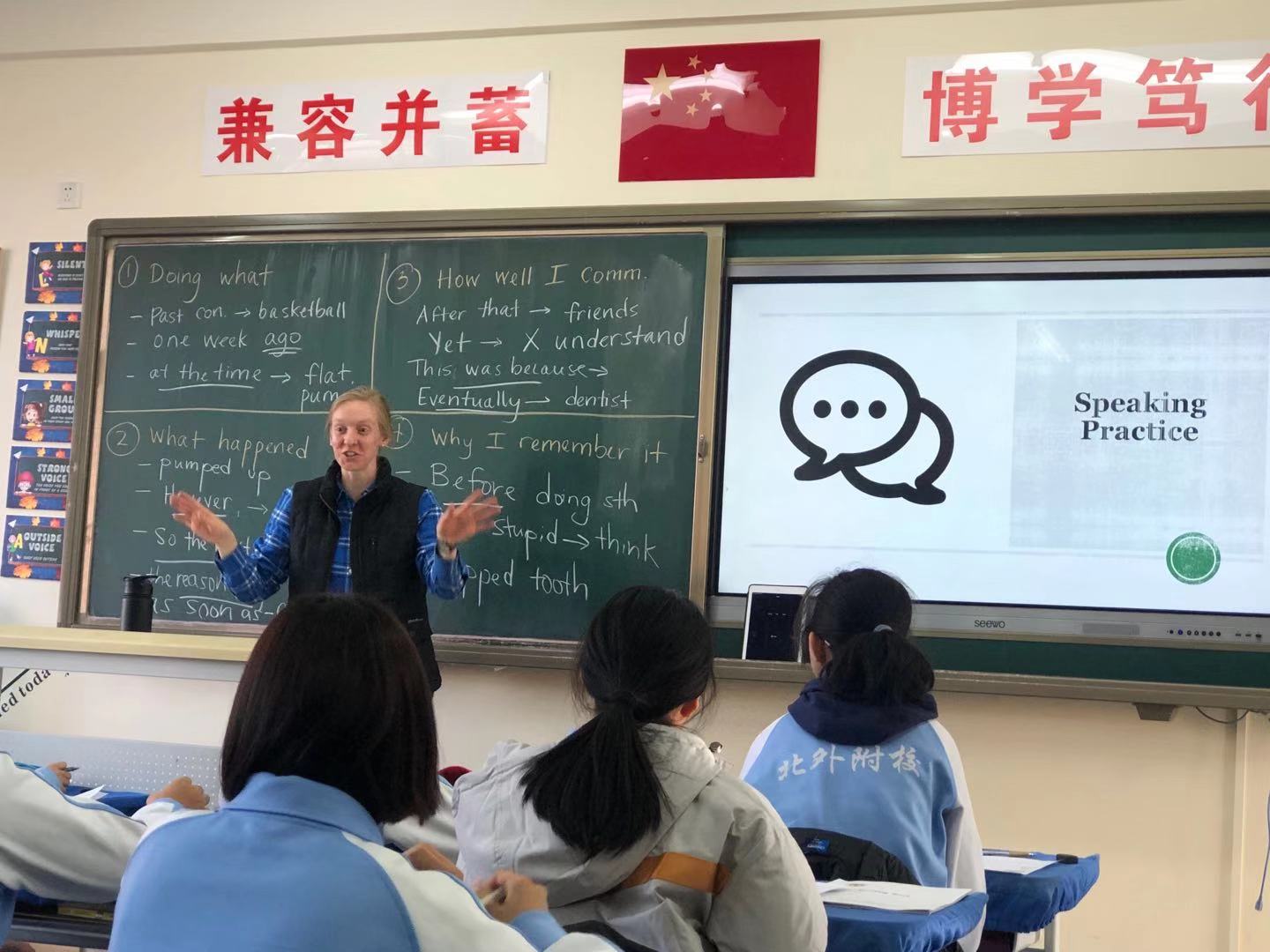
課后,中外教共同參與公開課的評課與交流,,表達對本堂課的聽后感受,,有共鳴、也有思維的碰撞,。此次公開課交流提升了教師專業(yè)素養(yǎng)和教學基本功,,促進了全體教師專業(yè)自我發(fā)展。本次活動全程錄像,,資料組內(nèi)共享,,作為后續(xù)學習提高的資源。
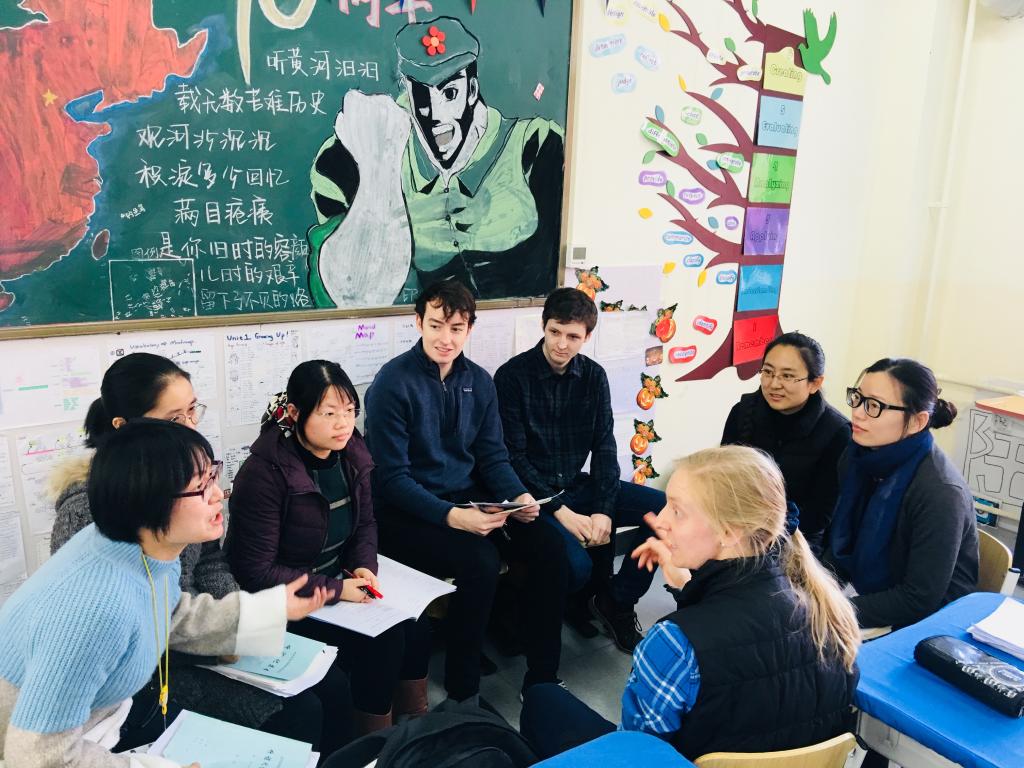
外教Miss Emily 公開課反思
Reflection on Open Class
The open class this time was a new experience for me, since it was my first time teaching IELTS material for an open class. Honestly, I wasn’t very confident about the class, and I think there are many things that could have gone better. However, I believe I was able to achieve my objectives.
In the process of planning the lesson, Cora gave me some suggestions, which were very helpful (that I needed to focus more on the verb tense, and that I also needed to design a worksheet for the students to give them more space to write). I tried to implement these suggestions, and they both proved to be essential to the lesson.
Overall, the students were able to achieve the objectives in the lesson. They can now better use phrases to mark the stages of a story, and they were also reminded to use the past tense when telling stories. I hope to give the students more guided practice with this topic, though, to better reinforce what they learned in the open class and to help them be able to speak more freely on other topics.
There are some things that I think I can do better as well. Firstly, I could have done a better job of engaging the class. I felt that the students were nervous and self-conscious, and I needed to do a better job of pulling them out of that state. Secondly, I should have had the students present their speaking practice. This would have given the students a chance to hear a good example of the story and also to encourage them. Thirdly, I am still trying my best to better engage students whose English level is lower in the class, but this is an ever-present struggle for me, especially for students who aren’t motivated to study. Hopefully, I can help the students to love learning more.
Overall, I believe it was a successful lesson, because I was able to achieve my objectives, but, again, I still believe that there are many things that I can do better. Perhaps I can improve by continuing to observe other teachers’ lessons. It has been very helpful for me so far!
Emily Hein
(撰稿:初中高端英語項目 王珊 編輯:王天慈)




